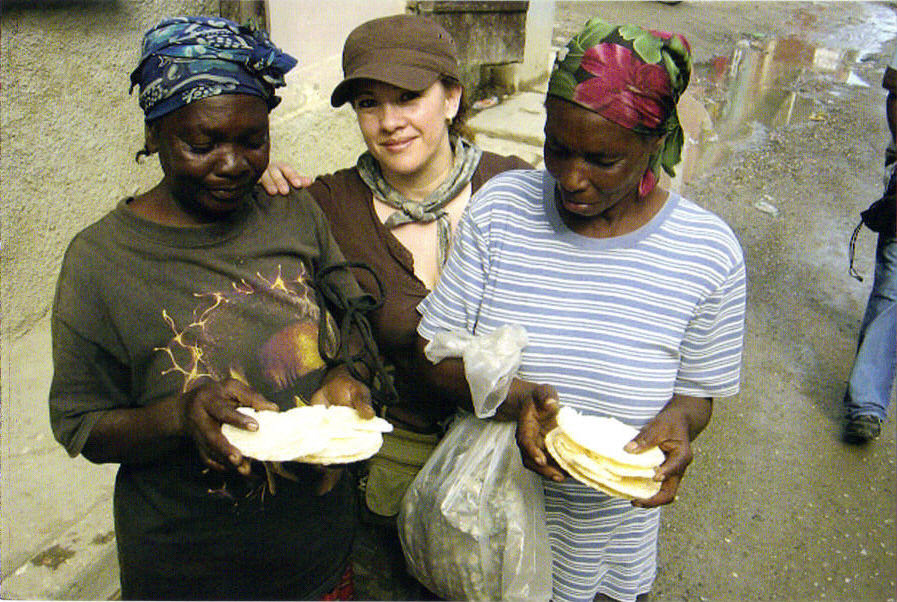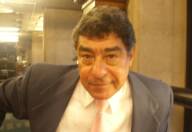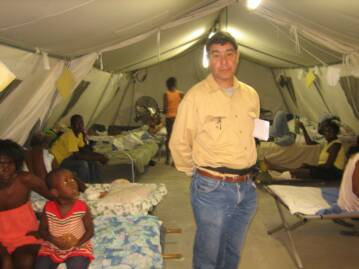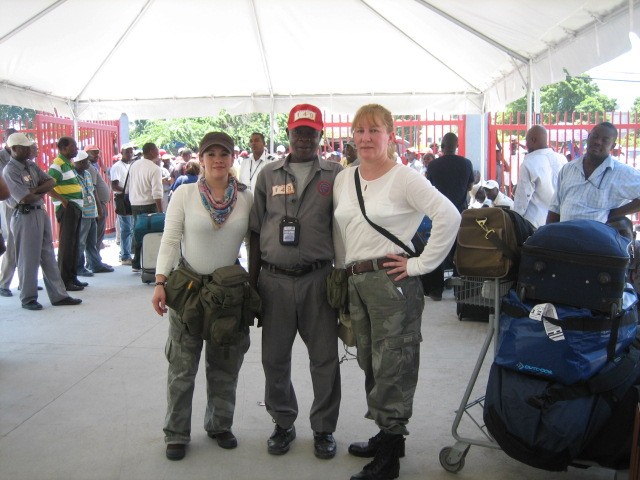Heart to Haiti, Can You Hear Me Now?
by Cate Murway
“I expect to pass through this world but once; any good thing therefore that I can do, or any kindness that I can show to any fellow creature, let me do it now; let me not defer or neglect it, for I shall not pass this way again.”
Etienne De Grellet (1773-1885)
Haiti occupies an area close to the size of Maryland on the Caribbean island of Hispaniola, which it shares with the Dominican Republic.
During the 18th century the western portion of Hispaniola, called Saint-Domingue [the French version of the Spanish name Santo Domingo], was one of the wealthiest colonies in the French empire, recognized for its lucrative sugarcane and coffee plantations. In 1791 the African slave population revolted and secured its independence from Napoleon Bonaparte's France, becoming the second country in the Americas to free itself from colonial rule on January 1, 1804.
The country was renamed Haiti.
Haiti has been treated as a basket case, a heart-rending site, where a foundering economy, corruption, gang violence and natural disaster combine to drag the country backwards. There has been near-constant political upheaval, health crises, severe environmental degradation and an annual barrage of hurricanes for the poorest in the Western Hemisphere, leaving an infrastructure so nonexistent and a state hopelessly ineffectual. Now the devastating 7.0-magnitude earthquake in Haiti may have killed 150,000, impoverishing the survivors and rendering 3 million homeless. Appalling scenes, a catastrophe beyond our worst imagination, remain in the capital of Port-au-Prince that was near the epicenter.
Maintaining law and order is an immediate priority as the longer the survivors wait in the streets for help to come, the more likely it is that the chaos and despair will turn to rage. Haiti is surely one failed state on Dr. Frederick “Fred” Ramirez’s heart doorstep and he has placed himself in the unique position to help.
“Haiti,” Fred began, “is not a country. Haiti is a place.”
This “Spotlight” started with an E-mail from Joseph Farquahar Hetherington, BHS ’56, one of the driving forces behind the Bristol Rotary International programs.
“Last Wednesday Fred Ramirez returned to Bristol Rotary after an unexplained absence. Possibly you could interview Fred before he returns to Haiti for an article.”
Joe writes and edits the Rotary’s weekly newsletter, the Chanticleer.
“Service above self” is a deeply ingrained innate component of its members.
Dr. Fred originally traveled a painful ride over mangled roads to Haiti to set up a medical clinic, but nothing is ever quite that simple. “Everything is needed. You go with a medical corps, and find you need social services. You need schools.”
“We make a living by what we get, we make a life by what we give.”
Sir Winston Churchill (1874 - 1965)
Fred is still determinedly building an outpatient treatment center as he is poignantly caring for patients on the streets in a makeshift tent clinic. Now his ambitious plans include building an orphanage for the 30 children for which he has taken responsibility. The Haitian people had meager places to stay to start with and now they have nothing, presently acres of precarious blue tents pass for shelter.
There is no magic wand to fix this impossible problem, a republic damaged but still somewhat standing. Less than zero is a difficult number with which to work.
Dr. Fred was at home in Bristol for just two weeks scrambling to gather additional medical and other supplies. “Most, if not all, of the clothing, water and some food stuff distributed in Port-A-Prince hospitals came from our clients right here in Bristol. Furthermore Bristol based clinicians Nadine Murtaugh and Maria Farias donated large supplies of crutches and other medical equipment.”
These are flashes of light in a landscape that reminds us of life’s brevity.
Donations of summer clothing and shoes, daily necessities including liquid soap, toothpaste and toothbrushes, and medical supplies like bandages, gauze and over-the-counter medication, wheelchairs and walkers are needed. Collection boxes will be situated in several Borough stores, such as the Bristol MiniMart on 318 Mill Street and Game Zombie on 315 Mill Street.
Shipping supplies to Haiti is a logistical challenge in itself, so an additional concern is how to mobilize resources throughout the region. Fred explained to the Rotary, “Sadly, a lot of relief items go into the black market instead of helping the people they were meant for. What you have to do is take the supplies in yourself and distribute them yourself.”
Fred finished his sober presentation, “Haiti was and remains a tragedy.”
This is not merely a nightmare. For the Haitian survivors in a very topsy-turvy place, there is no choice but to wake up and face the day. It is just the beginning of a very long road to their new normal.
Hopefully, they will not surrender their last asset: faith in the future.
Thousands of new amputees, some amputations performed without anesthesia, are facing the stark reality of living with disabilities in a shattered country whose terrain and culture have never been even a tad bit hospitable to the disabled.
Frederick Ramirez, Holy Spirit School [PR]/Catholic University and a scholarship student Temple U. /PH.D psychology & clinical social work, was born in San Juan, PR and lived with his parents, the late warehouse owner Jose and his mother, Carmen in NYC until the age of 15. His family returned to Puerto Rico where his mother and his sister, Eileen, who works for the US Dept. of Labor still reside.
The Radcliffe Street resident and Executive Director of Pan American health, specializing in behavioral health, general medicine and general health is also a member of the Bristol Rotary. Robert White, Executive Director of Redevelopment Authority of the County of Bucks, suggested that he join. Fred shared, “I have always been attracted to organizations and people that have a purposeful international philanthropic prospective.”
The Haiti tragedy occurred while Fred was working in one of his clinics in Puerto Rico.
“My word, this is horrific. This is what Pan American Health does. I can’t turn away from this.” His two Haitian affiliates, Dr. Michel Bien-Aime, Children’s Psychiatry, and Dr. Serge Celestin, Geriatric Psychiatry, fluent in Spanish, French and Creole, accompanied him on the small plane, as well as general practitioner, Dr. Mariana Almeo.
Colombian born Martha Lizarazo, a lawyer by profession,
and employed by Dr. Ramirez as an administrative assistant
at his health clinic in Bristol accompanied them also.
Her main motivation for going to Haiti was purely humanitarian in nature,
“I have always worked in political and disadvantaged communities.
I am interested in humanitarian issues, children’s issues, female
heads of household, elderly, homeless, etc.
My experience and my passion pushed me to help the needy Haitian population.
I have to emphasize that I am grateful in life, with God, and with my bosses
for giving me this opportunity, a praiseworthy shared experience.
It was a new and enlightening experience, but, also sad.
It is one thing to tell someone about the experience and quite another to live it.”
This was the just the first step in their mission to help Haiti and to develop close ties to the people they have assisted.
According to Martha, “Volunteers in Haiti continue fighting and giving their best to change just a bit of history.”
“Once you are there and working in the zone, you feel anytime you go home that you are letting them down,” Dr. Fred explained.
The UN is providing very well invested, coordinated aid but the fear is that the UN will ship out because Haiti is not war revenged, so they may not stay.
Relief agencies will be needed for years since everything we take for granted is needed there. There are no roads. The airport was reserved for the military transports so their travel was always in a roundabout way as a bus transported them to a cinder block building that serves as the terminal.
They tote their clothing in a backpack and they can’t drink the water.
The selfless humanitarians needed 6 different vaccinations against infectious mosquito-borne Dengue fever and malaria before their departure to Haiti.
“The mosquitoes look like airplanes.”
Never have there been human beings so wealthy, so educated, ... But we do not realize it unless we visit countries with striking poverty.
The Rotary is the world’s largest humanitarian organization and they can use a hand. What are you doing with your time?
Recommend a “Spotlight”; e-mail vjmrun@yahoo.com



Dr. Fred in tent hospital in Haiti

Martha Lizarazo and Dr. Mariana Almeo
w/ Haitian gentleman.